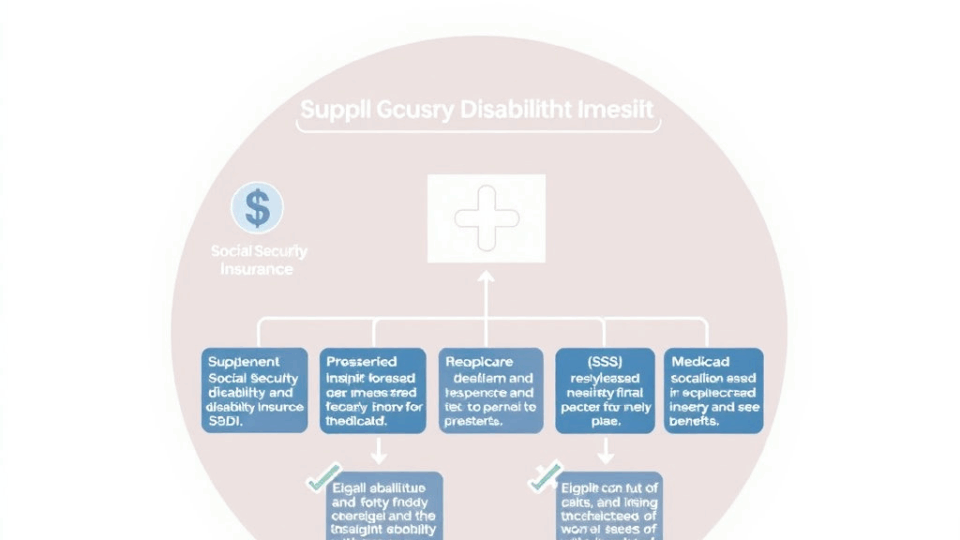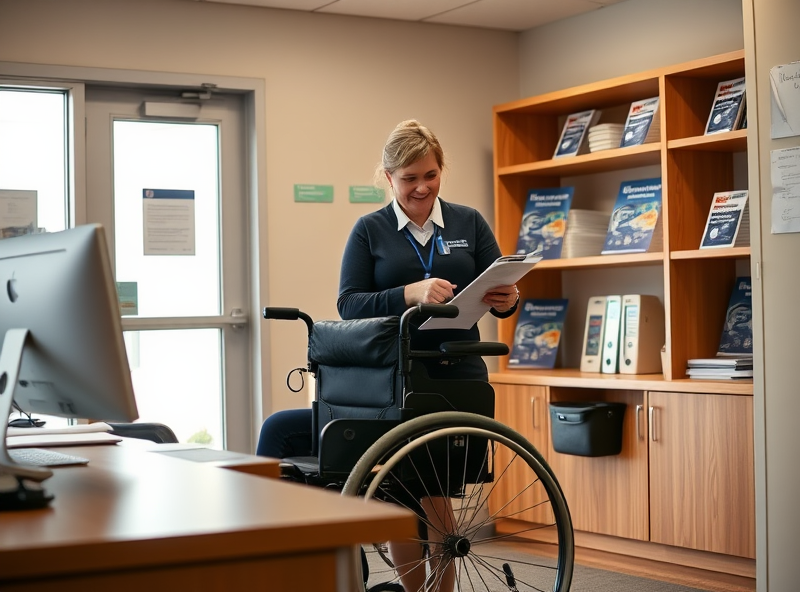
Disability Assistance Programs: Government Benefits Overview
Income Support Programs for People with Disabilities

Navigating life with a disability can come with unique financial challenges. Thankfully, several government income support programs are designed to help individuals with disabilities maintain financial stability and live with dignity.
One of the most well-known programs in the United States is the Social Security Disability Insurance (SSDI). SSDI provides monthly payments to individuals who have worked and paid Social Security taxes but are now unable to work due to a qualifying disability. To be eligible, applicants must meet the Social Security Administration’s strict definition of disability and have sufficient work credits.
Another vital program is Supplemental Security Income (SSI), which offers financial assistance to disabled individuals with limited income and resources, regardless of their work history. SSI is especially helpful for those who have never been able to work due to their disability or who have low lifetime earnings.
In addition to federal programs, many states offer their own disability income support initiatives. These can include state disability insurance, short-term disability benefits, or additional supplements to federal aid. It’s important to check with your state’s human services or disability office to explore all available options.
Moreover, some people may qualify for other forms of assistance, such as Medicaid, housing support, or food assistance, which can be critical in reducing overall financial strain.
Understanding and accessing these programs can significantly improve quality of life. If you or a loved one is living with a disability, it’s worth exploring these benefits thoroughly. For more detailed information, visit the official Social Security Administration website: https://www.ssa.gov/benefits/disability/
Healthcare and Medical Benefits for the Disabled

Access to quality healthcare is a fundamental right, and for individuals with disabilities, there are several government programs designed to ensure they receive the medical support they need. These programs not only help cover medical expenses but also provide essential services that improve quality of life.
One of the most significant programs is Medicaid, a state and federally funded initiative that offers comprehensive healthcare coverage to low-income individuals, including many people with disabilities. Medicaid covers doctor visits, hospital stays, prescription medications, and even long-term care services. Each state has its own eligibility criteria, so it’s important to check with your local Medicaid office for specific details.
Another vital program is Medicare, primarily for individuals over 65, but also available to younger people with certain disabilities. If you’ve been receiving Social Security Disability Insurance (SSDI) for at least 24 months, you’re generally eligible for Medicare. It includes Part A (hospital insurance), Part B (medical insurance), and optional Part D (prescription drug coverage).
Supplemental Security Income (SSI) recipients often automatically qualify for Medicaid in most states, which simplifies access to healthcare. Additionally, many states offer Home and Community-Based Services (HCBS) waivers, allowing people with disabilities to receive care in their homes rather than institutional settings.
For veterans, the Department of Veterans Affairs (VA) provides specialized healthcare services tailored to service-connected disabilities. This includes physical therapy, mental health services, and assistive devices.
Navigating these programs can be complex, but resources like the U.S. Department of Health & Human Services (https://www.hhs.gov/programs/social-services/disability/index.html) offer helpful guidance. Taking the time to understand your eligibility and benefits can lead to better health outcomes and greater independence.
Daily Living Assistance and Personal Support Services

Living with a disability can present daily challenges, but there are numerous government-funded and community-based programs designed to help individuals maintain independence and quality of life. Daily living assistance and personal support services are essential components of disability assistance programs, offering help with everyday tasks such as bathing, dressing, meal preparation, and mobility support.
These services are often provided through Medicaid Home and Community-Based Services (HCBS) waivers, which allow eligible individuals to receive care in their homes or communities rather than in institutional settings. Services may include personal care aides, homemaker services, transportation assistance, and respite care for family caregivers.
Many states also offer programs like In-Home Supportive Services (IHSS) or Personal Assistance Services (PAS), which empower individuals to hire and manage their own caregivers. This approach not only fosters autonomy but also ensures that care is tailored to the individual’s unique needs and preferences.
To access these services, individuals typically need to undergo an assessment to determine eligibility based on medical and financial criteria. It’s important to check with your state’s Department of Health or Human Services for specific program details and application procedures.
For more information on Medicaid HCBS waivers, you can visit the official Medicaid website: https://www.medicaid.gov/medicaid/home-community-based-services/index.html
Employment, Training & Financial Tools for Independence

Gaining independence through employment and financial stability is a key goal for many individuals with disabilities. Thankfully, there are a variety of government programs and resources designed to support this journey. These programs offer not only job training and placement services but also financial tools to help individuals build a secure and self-sufficient future.
One of the most impactful programs is the Ticket to Work program, administered by the Social Security Administration. This free and voluntary program helps Social Security disability beneficiaries transition into the workforce by providing access to employment networks, vocational rehabilitation, and career counseling. It’s tailored to individual needs and helps participants find meaningful employment without immediately losing their benefits. You can learn more about it here: https://www.ssa.gov/work/
In addition to employment services, there are training programs available through the Department of Labor’s Workforce Innovation and Opportunity Act (WIOA). These programs offer job readiness training, apprenticeships, and on-the-job learning opportunities specifically designed for people with disabilities. Many local American Job Centers provide these services at no cost.
Financial tools are also crucial for independence. ABLE (Achieving a Better Life Experience) accounts allow eligible individuals with disabilities to save money without affecting their eligibility for public benefits like SSI or Medicaid. These tax-advantaged savings accounts can be used for education, housing, transportation, and other disability-related expenses.
By combining employment support, training opportunities, and financial tools, these programs empower individuals with disabilities to take control of their futures. Whether you’re just starting your career journey or looking to gain more financial independence, these resources are here to help you succeed.







